- No. 2 Street 623D, Phuoc Long B Ward, Thu Duc City, HCMC, Vietnam
- Admin@CTCinternimex.com
Are There Any Foods Cashew Nuts Should Not Be Eaten With? – The Surprising Truth!
Cashew nuts are a fantastic and nutritious nut, beloved for their buttery, crunchy texture and rich nutrient content. For a long time, cashews have been a popular snack, a versatile ingredient, and a healthy dietary supplement. However, have you ever wondered if, despite all their benefits, cashews might "clash" with certain foods or be unsuitable for specific individuals?
This article will delve into the misconceptions and facts about foods not to eat with cashews, helping you maximize the benefits of this wonderful nut while ensuring your well-being.
No Direct "Clashing" Foods: Cashew nuts don't cause harmful reactions when combined with any specific food.
Consideration When Combining:
- Similar High-Calorie/Fat Foods: Eating together can lead to weight gain or indigestion due to excessive calorie/fat intake.
- Excessive Insoluble Fiber Foods: May cause bloating or indigestion if consumed in large quantities.
Individuals Who Should Be Cautious (More Important):
- Nut Allergies: Absolutely avoid due to risk of severe reactions (anaphylaxis).
- Kidney Stones: Limit intake due to oxalate content, which can contribute to stone formation.
- Sore Throat/Hoarseness: Avoid roasted salted cashews as they can irritate the throat.
- Overweight/Dieting: Control portion size as cashews are calorie-dense.
- Digestive Issues: Consume small amounts and observe body's reaction to avoid bloating or diarrhea.
Proper Consumption: Eat in moderation (approx. 30g/day), choose plain roasted/steamed cashews, combine with balanced foods, and stay hydrated.
Do Cashew Nuts Really "Clash" with Specific Foods?
In modern nutritional science, cashew nuts do not have any direct "antagonistic" reactions with specific foods that would cause toxic chemical interactions when combined. The concept of "clashing" usually relates to interactions that might cause indigestion, reduce nutrient absorption, or worsen existing health conditions for certain individuals.
However, there are some considerations when combining cashews with certain foods or when consuming cashews for specific groups of people.
Cases to Consider When Eating Cashews
While there isn't a clear "foods to avoid with cashews" list, you should pay attention to the following aspects:
Foods with similar high fat and calorie content:
- The Issue: Cashew nuts are naturally rich in beneficial fats (monounsaturated fats) and calories. If you combine cashews with other foods that are also high in fat and calories (like butter, cheese, fatty meats, or oily fried dishes), the total calorie and fat intake for your body will significantly increase.
- Consequences: This can lead to unwanted weight gain, put stress on the digestive system, or be detrimental for those on a diet, trying to lose weight, or with heart conditions and high cholesterol.
- Advice: Consume cashews in moderation and balance them with other food groups.
Excessively high insoluble fiber foods:
- The Issue: Cashews contain a certain amount of fiber. If you eat too many cashews at once with foods extremely high in insoluble fiber (like wheat bran, some raw vegetables), it might cause bloating, indigestion, or constipation in some individuals with sensitive digestive systems.
- Advice: Always drink plenty of water when consuming high-fiber foods, including cashews.
Who Should Be Cautious When Eating Cashews?
Beyond considering food combinations, it's even more crucial to consider who is consuming cashews:
Nut Allergy Sufferers
- Most Important: This group must absolutely avoid cashews. A cashew allergy can cause severe reactions ranging from mild (mouth itching, rash) to severe (difficulty breathing, swelling, anaphylactic shock, potentially life-threatening).
- Symptoms: If you have a history of allergies to other nuts (peanuts, almonds, walnuts), be cautious and consult a doctor before trying cashews.
Individuals with Kidney Stones or a history of Kidney Stones
- The Issue: Cashews contain oxalates, a substance that can bind with calcium and form kidney stones in susceptible individuals or those who already have kidney stones.
- Advice: These individuals should limit their cashew intake or consult a doctor for suitable dietary recommendations.
People with Sore Throats, Hoarseness, or Laryngitis
- The Issue: Roasted salted cashews can irritate the throat, worsening soreness or hoarseness due to their crunchy texture and salt content.
- Advice: Avoid eating roasted salted cashews when experiencing throat issues. You might opt for steamed or plain roasted (unsalted) cashews if you really wish to consume them.
Overweight, Obese Individuals, or Those on a Diet
- The Issue: Although cashews contain beneficial fats, their total calorie content is quite high (around 553 calories/100g). Eating too many can lead to weight gain.
- Advice: Control your portion size. About 30g per day (equivalent to 15-20 nuts) is an ideal amount to reap the benefits without worrying about weight gain.
Individuals with Digestive Issues (Diarrhea, Bloating)
- The Issue: The fat and fiber content in cashews, if consumed excessively, can exacerbate indigestion, bloating, or diarrhea in those with sensitive digestive systems.
- Advice: Consume in small amounts and observe your body's reaction.
How to Eat Cashews Correctly to Maximize Health Benefits
To get the most out of cashews without experiencing unwanted issues, keep these tips in mind:
- Eat in moderation: Around 30g of cashews daily is an ideal amount.
- Choose natural cashews: Prioritize plain roasted (unsalted, unflavored) or steamed cashews to avoid unnecessary salt and sugar.
- Combine balanced: Pair them with green vegetables, fruits, and lean protein for a diverse and nutrient-rich meal.
- Stay hydrated: Especially when eating high-fiber foods like cashews.
- Listen to your body: If you experience any discomfort after eating, adjust the quantity or consult a nutritionist/doctor.
Cashew nuts do not have any "clashing" foods that directly cause harm when combined. The considerations mainly stem from cashews' nutritional characteristics (high in calories, fats, fiber) or the individual's specific health conditions (allergies, kidney stones, digestive issues). By consuming cashews wisely and listening to your body, you can fully enjoy the wonderful health benefits this nut offers.
Read more:
CTC International Import Export Joint Stock Company (CTC Internimex JSC) is a company specializing in the processing, production, and export of agricultural and forestry products from Vietnam to all over the world.
With nearly 20 years of experience in manufacturing and trading, we are committed to providing you with:
- The best quality products to meet all technical requirements.
- Quality assurance as per your requirements, with third-party inspections by SGS, Vinacontrol, Intertek, etc.
- The best prices.
- Optimized transportation costs and safe cargo through the use of reliable and experienced freight forwarders.
- Diverse shipping methods (EXW, FOB, CNF, CIF, DDP, etc.)
- Various payment methods (TT, L/C, etc.)
👉👉 We update the prices of various agricultural products every Monday.
You can refer to them at this link: Vietnam Agri-Exports: Weekly Price Updates
*** If you need to learn more about any specific product, please contact us right away. We are ready to assist you whenever you need us.
✨Big Promotion From Ctc Internimex Jsc For You 🌏✨
Partner With Ctc Internimex Jsc And Receive Even More Special Offers:
🍀 Free Sample
🍀 We Will Help You Get Import Tax Exemption
🍀 Oem Processing / Custom Design
🍀 Cheap Shipping👉👉 More details here: Big promotion from CTC internimex JSC for you
Contact our team of experts today for assistance with product information, competitive pricing, and logistics solutions for Vietnamese agricultural products.
Contact Information:
- Head office: No. 2 Street 623D, Phuoc Long B Ward, Thu Duc City, HCMC, Vietnam
- Hotline/WhatsApp: (+84) 944 772 339 / (+84) 393 887 377
- Email: Admin@CTCinternimex.com
- Search on Google Maps: Here
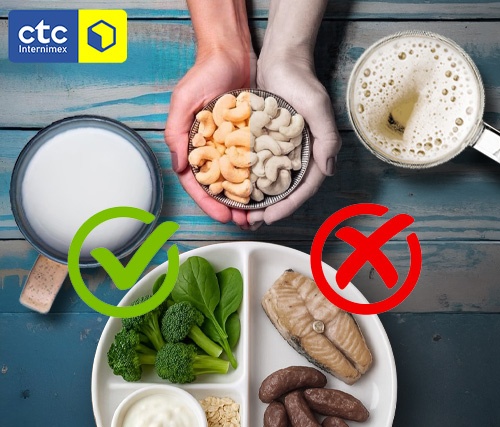 Are There Any Foods Cashew Nuts Should Not Be Eaten With? – The Surprising Truth!
Are There Any Foods Cashew Nuts Should Not Be Eaten With? – The Surprising Truth!
Worried about cashew allergies or potential side effects? Discover if cashews clash with any foods and who should limit intake for optimal health. Get expert tips on eating cashews healthy!
Chia sẻ:


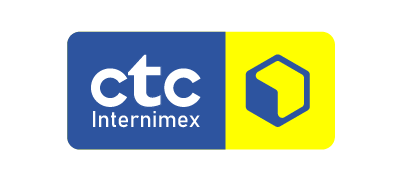

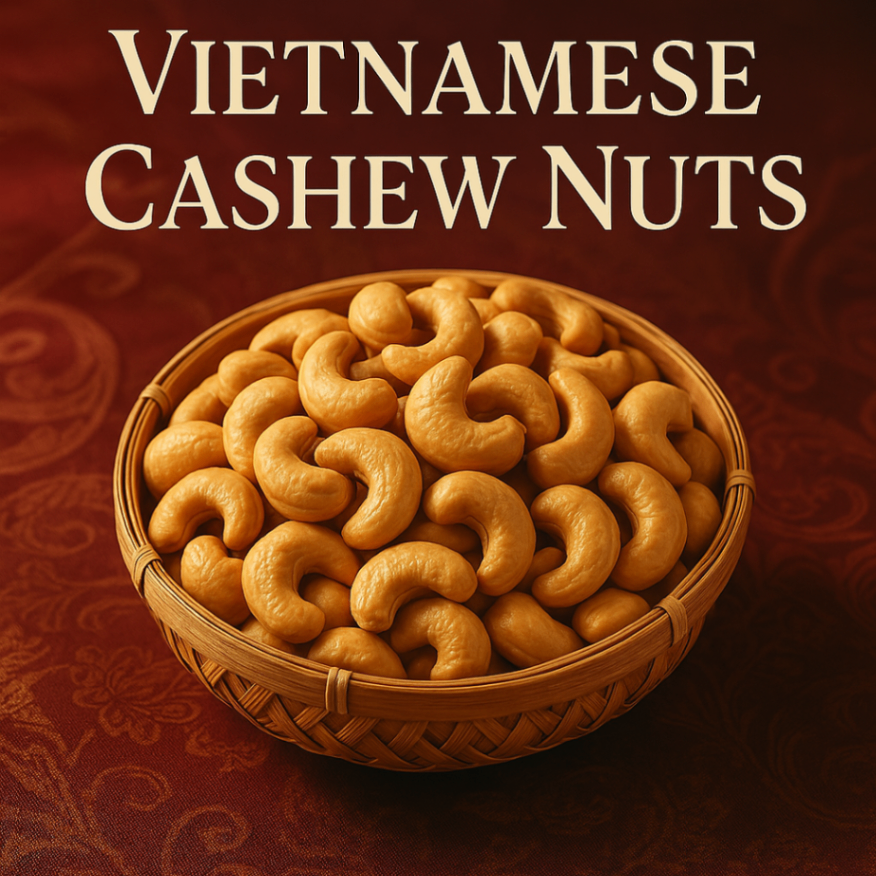


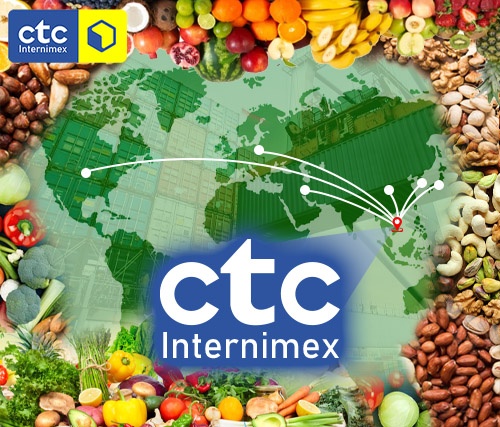
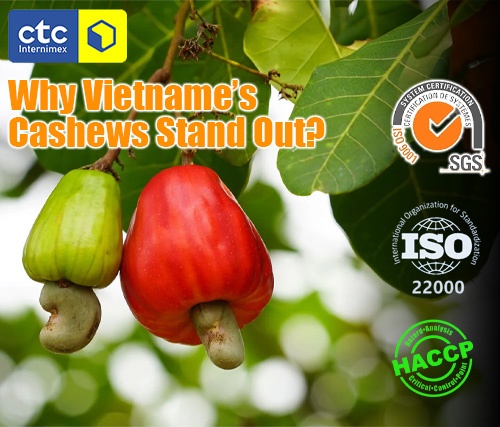




Comment